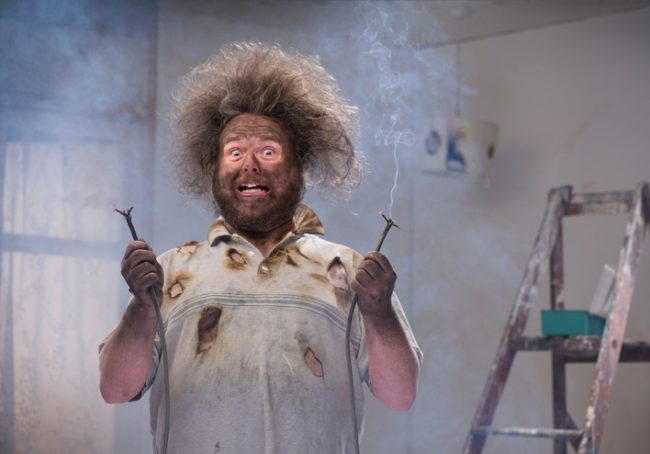DO NOT TOUCH BARE WIRES! Electricians in Newton Abbot
Seem’s pretty obvious, right? But there’s a lot more to it than that!
These days, many of us frequently turn to Google and Youtube for how to’s, hints and tips. The internet can be an invaluable resource for us DIYers. But how do you know that the information you are finding is coming from a trustworthy source?
Did you know that almost half of serious electric shocks in the home are caused by people trying to undertake ‘simple’ works on their own home? Every year there are around 70 deaths and over 350,000 are seriously injured. Poor understanding of what we’re dealing with can lead to electrical cables being severed or drilled into, or even simply forgetting to turn something off before you decide to ‘have a quick look’. As tempting as it may be to try and tackle these jobs yourself, is it really worth the risk?
And if you’re into irony; many of us take a risk in order to save money and yet it ends up costing so much more in the long run! And we’re not just talking about the £67 million pound spent every year, rectifying DIY faults – our frugality, ego’s, over enthusiasm or whatever it may be, could end up costing the lives of us and our families.
As a responsible company, we can never recommend trying to undertake any electrical worth without proper experience or training.
However, if that doesn’t put you off and you still insist on giving it a go yourself, here are 5 great tips, courtesy of www.electricalsafetyfirst.org.uk
Top five tips for electrical DIY
- Locate cables in your wall. A common DIY error is accidentally drilling, nailing or screwing things into cables hidden inside your walls. A quality cable detector can help you to track buried cables before you start work and avoid the risk of an electric shock.
- Use an RCD (residual current device). An RCD can save your life by cutting off the power in the event of an electrical fault caused by a DIY blunder. Make sure you have one fitted in your fusebox (consumer unit), and where necessary use a plug-in RCD.
- Shut off the power. If you’re doing any work near electrical wiring or power supplies, where possible, shut off the power in your fusebox and use battery powered tools. To be sure that power is off before beginning DIY, plug an appliance into sockets and try switching on the lights.
- Check power tools and watch out for the lead. Before using any power tools, check the lead and plug are in good condition. If you can see signs of damage (such as frayed wires) get the equipment repaired before using it. And watch out for the power lead at all times so you don’t accidentally cut through or trip over it.
- Get advice from a registered electrician. The best way to avoid any electrical problems in the home is to seek the advice of a professional. If you’re not sure, don’t DIY. Contact us for advice.
We are Electricians in Newton Abbot, Torquay, Exeter, Plymouth and the surrounding areas.


